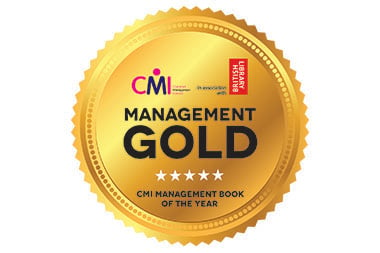Management Book of the Year: Frugal Innovation

Delve into CMI’s best management book of 2015 as Insights takes a look at how six simple principles are the key to doing more (and better) with less
2016 Management Book of the Year winning author Jaideep PrabhuStagnant incomes and greater concern for the environment are making Western consumers both more value and values conscious. Equally, ordinary people in the West are increasingly empowered to do with limited resources what only large firms could do in the past.
Ubiquitous tools such as smartphones, cloud computing, 3D printers, crowdfunding, and social media, have given rise to grassroots innovation exemplified by the maker movement and the sharing economy.
In the face of this revolution, how can large firms, wedded to a (typically) expensive, slow and insular approach to innovation, tap into frugal innovation and learn to do more (and better) with less?
There are six principles that large firms can adopt to innovate faster, better and cheaper:
Engage and iterate
This principle is exemplified by Scott Cook, the founder and CEO of Intuit. Cook’s first product was Quicken, software designed to help households manage their finances.
Cook was so obsessed with the customer need he was trying to solve that he would hang out in Staples parking lots and ask customers who had just bought his product if he could follow them home to see how they installed and used it.
He used these insights to continuously improve the product from the customers’ perspective.
Flex your assets
Companies are increasingly looking to do more with less with their physical and human assets. For instance, Novartis is developing continuous manufacturing techniques whereby smaller, mobile plants will produce drugs faster.
These plants cost far less to set up and have a lower environmental footprint than traditional batch-mode production facilities. Companies like GSK are making big changes in how they organise and manage their R&D teams, making them more agile and flexible.
Develop sustainable solutions
Many firms are focussed on uncoupling their business models from their environmental footprint. The French flooring company Tarkett has the bold ambition of being a completely circular enterprise by 2020: they hope to be able to reuse and recycle all the raw materials in their products by then.
They recognise this will require a change in the operations and their business model itself: they will need to move from selling their products to offering a solution service.
Shape customer behaviour
Large firms like Nestle, Unilever, and Walmart have made huge strides in reducing their own footprint; they realise, however, that the way customers use their products are still a big contributor to global warming.
So, firms are now using clever apps and big data to help customers visualise and manage their own in-home behaviour to make smarter use of energy and water. Banks and healthcare firms are also making use of such apps to enable customers to be save money and lead more healthy lives.
Co-create value with prosumers
Firms are increasingly working with prosumers (consumers who are actively involved in the sharing economy and maker movement) to co-create products and services. GE, for instance, has an online platform called FirstBuild where prosumers are involved in not only suggesting new ideas for home appliances but also in designing and, in some cases, helping make these products.
Make innovative friends
Firms are increasingly partnering with others to innovate faster, better and cheaper.
Barclays has set up an accelerator in London where it houses financial technology start-ups for three months, mentoring them and then potentially absorbing them into the main bank. The bank is now opening two more accelerators in New York and Manchester.
To embed these frugal principles firms must be able to embrace large-scale change that starts at the top and percolates through the organisation. Such change isn’t easy but, if done well, can become a huge source of advantage over competition in the long run.

Press & Media Enquiries
For more information or to request interviews, contact CMI's Press Team on 020 7421 2705 or email press.office@managers.org.uk


